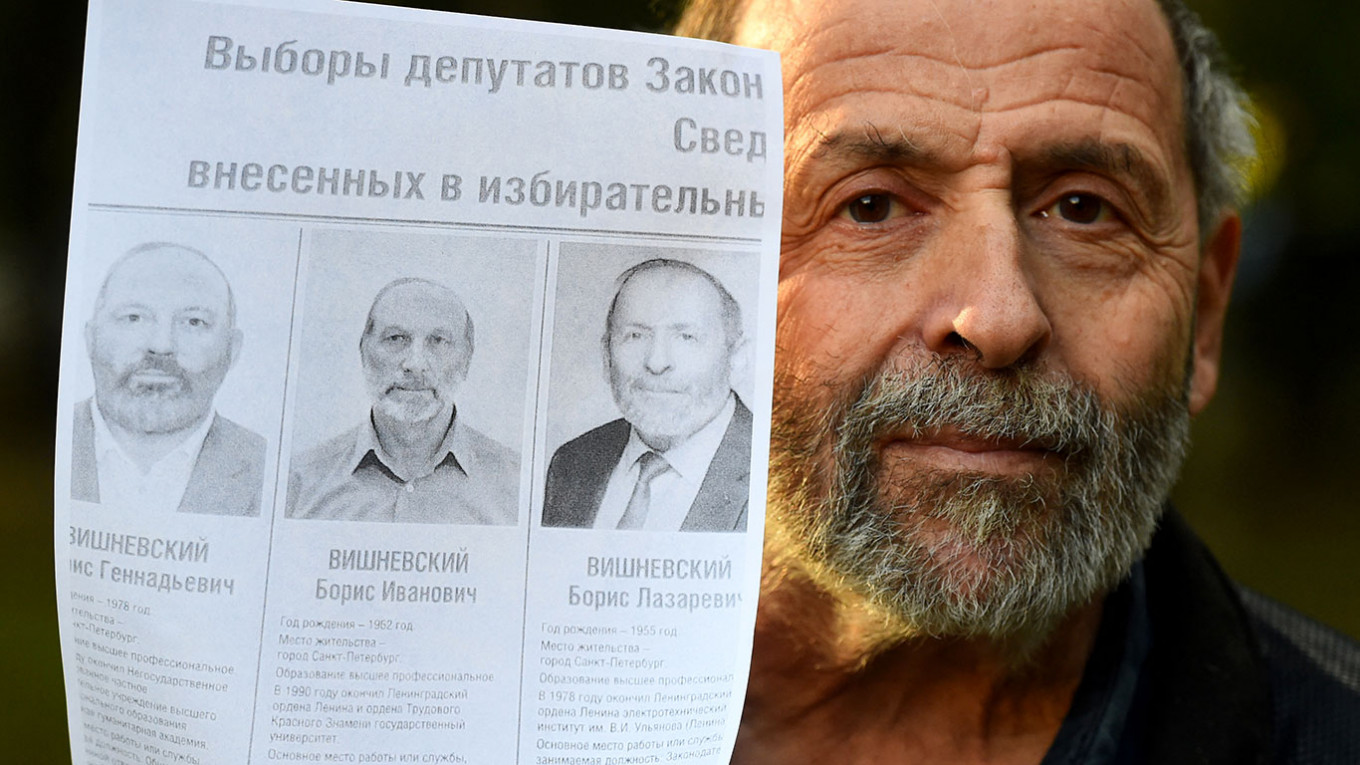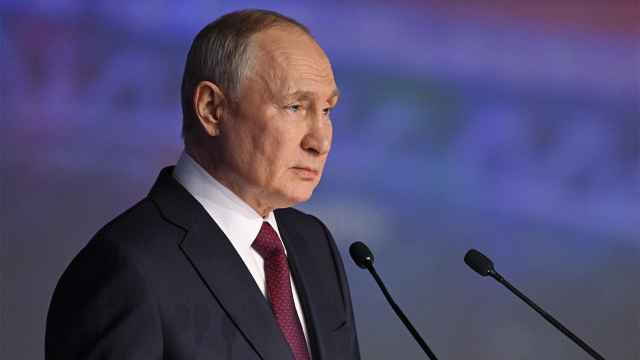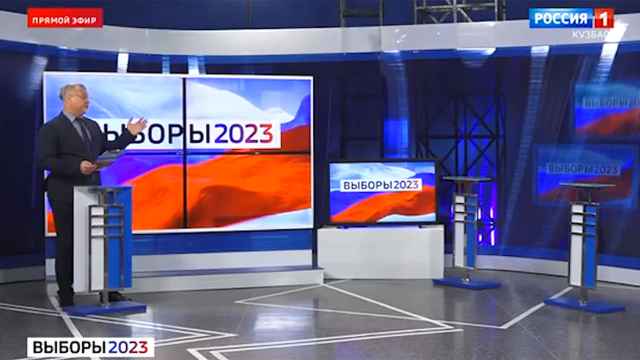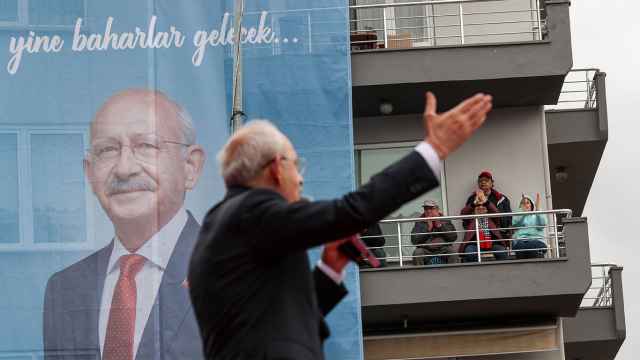“I’m Boris Vishnevsky.”
“No, I’m Boris Vishnevsky.”
“No, no: I am Boris Vishnevsky!”
A Russian adaptation of Spartacus? Quite the opposite.
Voters taking part in elections for the St. Petersburg legislative assembly will see three remarkably similar faces on candidate information posters when they head to the polls Sept. 17–19. And all three men have the same name (save their patronymics). The Runet is already saturated with images of the “Three Vishnevskys.” Memes are multiplying.
As is now well known, two “spoiler” candidates changed their names — and appearance — in an attempt, it seems, to confuse voters and draw support away from the real Boris Vishnevsky, the leader of the Yabloko parliamentary faction in the St. Petersburg assembly.
The use of spoiler candidates and spoiler parties is far from new: it’s an established “dirty trick” in Russia and other post-Soviet states — and beyond. But this particular case has served as a potent example of the un-levelling of the electoral field in Russia.
Manipulation beyond Moscow
Ella Pamfilova isn’t happy. The head of Russia’s Central Electoral Commission (CEC) called the incident “a disgrace, an outrage. It’s just making a mockery of voters.”
Some people might be scratching their heads at this reaction. For those who think that all politics — and all electoral manipulation – in Russia is centrally coordinated, it would be odd for the supposed “manipulator in chief” to call out something of her own doing.
Might it be that Pamfilova’s team gave the green light for the spoiler candidates to run, but didn’t anticipate the degree to which the case would resonate? That’s certainly one possibility.
But there is another, more plausible account: this is a case of electoral manipulation at the regional level without the foreknowledge of Moscow. And that tells us about limits to the centralization of politics — and vote rigging — in Russia.
This possibility also helps make sense of another incident. Novaya Gazeta has reported on an audio recording that it claims provides an example of vote rigging training. According to the newspaper, the recording was made at a session involving electoral commission officials in Korolyov — a city in Moscow Oblast’ — during which instructions were given regarding the vote results that should be achieved and how falsification could be used to achieve them.
Pamfilova’s response? The Central Electoral Commission will work with law enforcement to bring those involved to justice. There was, apparently, no attempt to dismiss the allegations as false.
The “power vertical” runs into trouble
This response from the elections chief likely reflects genuine frustration with lower-level actors, particularly given that Pamfilova has been publicly tasked with making elections appear as legitimate as possible. Optics matter — and the cases in St. Petersburg and Korolyov are dirty splodges on the electoral landscape.
But such cases shouldn’t be that surprising in a system for which the “power vertical” is more mythology than reality. With “Putinism from below,” the scope for action not dictated explicitly from the federal center is significant. And that can sometimes lead to embarrassing episodes for those at the top. This is the downside of what Mark Galeotti calls Russia’s “adhocracy.”
Anyway, tensions have been simmering for a while between electoral officials in Moscow and St. Petersburg. In June, for instance, Pamfilova said that the Central Electoral Commission had “neither understanding nor constructive interaction” with the northern capital’s leadership. And these frosty relations extend to Korolyov. After allegations of electoral violations there during the 2016 State Duma elections, Pamfilova ordered a review of the work of the city’s electoral commission.
“Domestic” vs. “foreign” interference
There is, however, another reason why these incidents are awkward for Moscow. Senior Russia officials have sustained a narrative of attempted “foreign interference” in the run-up to the State Duma elections.
Russia’s Foreign Minister, Sergei Lavrov, has claimed that Western countries are intent on casting doubt on the election results. Senator Andrei Klimov — the head of the Federation Council’s Commission for Protecting State Sovereignty and Preventing Interference in the Internal Affairs of the Russian Federation — has claimed that observers of the “collective West” have attempted to interfere in elections. And Ella Pamfilova herself has said that a campaign has been launched outside of Russia to discredit multi-day voting.
The aim appears to be to frame claims of electoral malpractice as “fake” and as furthering the interests of foreign powers. The narrative runs into trouble, however, when rigging clearly appears to be the result of domestic interference.
Dramaturgiya or de-centralised deviousness?
A more conspirological take is that this is all dramaturgiya — scripted political theatre. Except that this charge is usually levelled against faking democracy, rather than acting out the subversion of democracy. Could it be that Pamfilova engineered these cases in order to very publicly and forcefully rebuke lower-level officials — and with a view to dissuading others from trying similar tricks?
That strains credulity — especially when taking into account the continued stand-off between St. Petersburg and Pamfilova regarding what to do next. The CEC head has called for the two spoiler candidates to withdraw from the elections. Meanwhile, St. Petersburg electoral officials have refused the real Boris Vishnevsky’s complaint against the two, saying that the different patronymics of the three candidates are enough for voters to distinguish the men.
The unprecedented steps taken against the opposition in Russia — as well as independent media — form the most important story of these elections. But we shouldn’t forget that the authorities do not form a monolithic bloc, even when it comes to “managing” democracy. And that has made Ella Pamfilova's already very tricky position even more difficult.
A Message from The Moscow Times:
Dear readers,
We are facing unprecedented challenges. Russia's Prosecutor General's Office has designated The Moscow Times as an "undesirable" organization, criminalizing our work and putting our staff at risk of prosecution. This follows our earlier unjust labeling as a "foreign agent."
These actions are direct attempts to silence independent journalism in Russia. The authorities claim our work "discredits the decisions of the Russian leadership." We see things differently: we strive to provide accurate, unbiased reporting on Russia.
We, the journalists of The Moscow Times, refuse to be silenced. But to continue our work, we need your help.
Your support, no matter how small, makes a world of difference. If you can, please support us monthly starting from just $2. It's quick to set up, and every contribution makes a significant impact.
By supporting The Moscow Times, you're defending open, independent journalism in the face of repression. Thank you for standing with us.
Remind me later.








